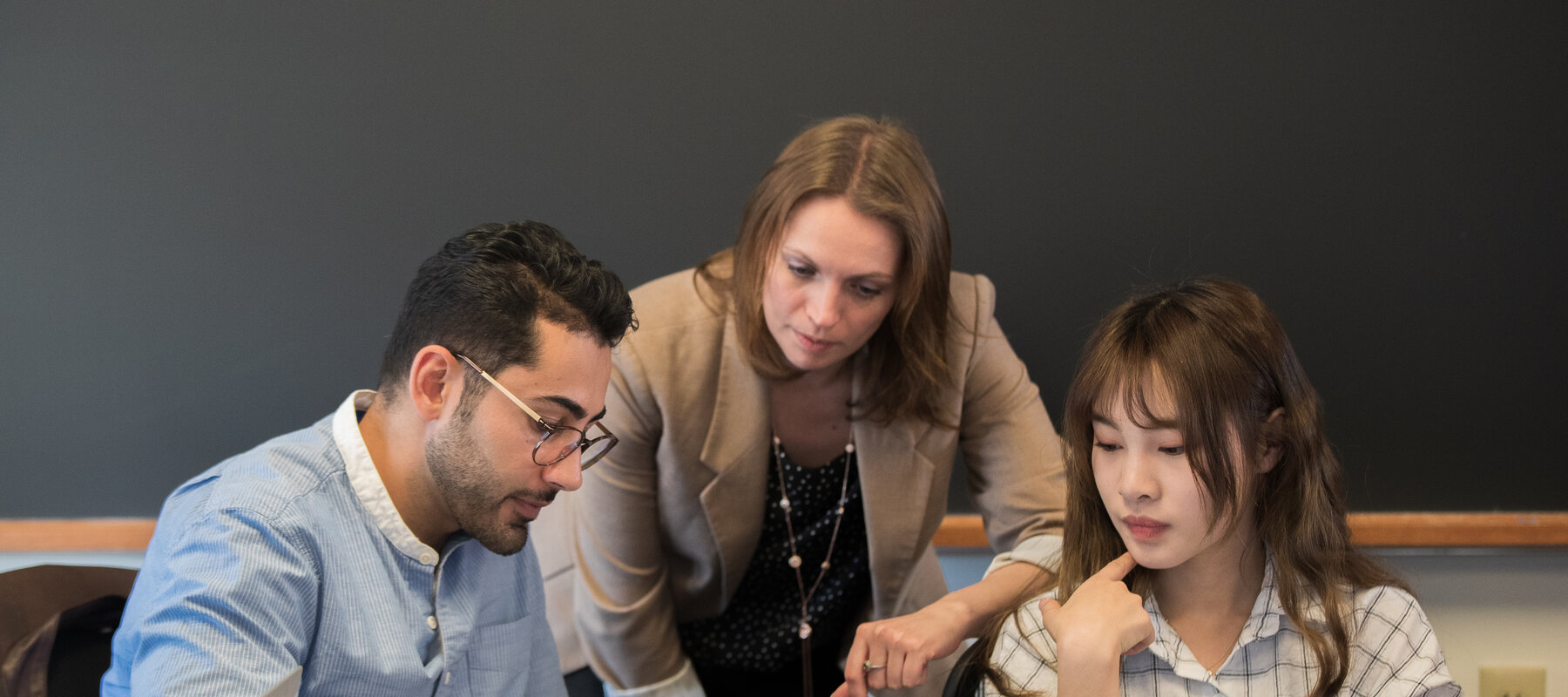To be truly international, a university must be a place that welcomes diverse perspectives and facilitates global conversations, says Mark Ouellette, director of Lehigh’s International Center for Academic and Professional English (ICAPE).
ICAPE changed its name from English as a Second Language two years ago in recognition of the global spread of multiple varieties of the language, both within and outside of the United States. Specifically, Mark Ouellette comments that the single term “ESL” does not accurately reflect the rich diversity of language and culture that Lehigh students bring to the learning environment. Nor does the term fully characterize the various types of encounters these students have had with the language throughout their lives. Instead, ICAPE uses the term “multilingual speaker of English.” Such a person might speak several languages in addition to English. He or she might even be a U.S. citizen who uses one language at home and English at school, or any number of other language experiences.
At Lehigh, we instead view language as a resource that contributes to global learning experiences for all students and can help move disciplines forward.
Ouellette says that students with these widely varying cultural and linguistic backgrounds bring valuable experiences and perspectives that can be shared in the classroom. Through intercultural classroom sharing, professors can facilitate opportunities for students to understand disciplinary subject matter in new and different ways -- ultimately, the essential goal of a university for its students.
“When it comes to English language education, we traditionally think of a deficit model, where linguistic differences inhibit learning,” Ouellette says. “At Lehigh, we instead view language as a resource that contributes to global learning experiences for all students and can help move disciplines forward.”
This perspective on multilingualism in higher education may be new to some people, and it can present a challenge to traditional ways of teaching. So ICAPE works to help faculty and staff effectively teach, advise, and mentor multilingual speakers of English, in addition to providing non-credit and credit courses, workshops and tutoring for students.
The ICAPE website has several resources, including a list of suggestions for faculty members to develop more inclusive teaching practices, as well as a video about facilitating group discussions and links to books about teaching multilingual students for those who want to learn more.
ICAPE staff also offer workshops on campus throughout the year. For example, at the 2019 Symposium on Teaching and Learning, Ouellette and Ashley Murphy, assistant director of ICAPE, led a session titled “How Can We Get Them to Speak English?: Multilingualism in Higher Education” with tips to help engage students in class discussions. And Elena Reiss, ICAPE language specialist, offers a workshop titled “Not Lost in Translation: A Guide to Intercultural Interactions,” through Knowledge @ Noon, the staff development series hosted by the Employee Relations Advisory Committee.
Kevin Ezzell, director of the 1-MBA program, worked with Reiss to develop a session for their new student orientation. The full-time program attracts local and international students and requires them to work in teams in almost all their courses.
“I wanted to design a program around cultural communication, as we wanted to celebrate this cohort's diversity, but also identify cultural differences in communication,” says Ezzell. “The workshop was offered the first day the cohort arrived to campus and was very successful in engaging these students in conversation around communications. The experience helped me as a program director to be able to listen to the conversation the students engaged in to better frame my approach to communication with each individual student.”
For more personalized support, faculty members can contact ICAPE for individual consultations about classroom or teaching issues, which can include meeting with the professor and the student, observing a class, or reviewing student writing samples and offering suggestions.
“We can help instructors open up the classroom to make it accessible to students from different cultural and linguistic backgrounds,” says Ouellette. “How do you facilitate that space when a person won’t talk to you or you don’t understand them? We consider the topics we talk about and how we talk about them, and how to facilitate classroom situations in which multiple perspectives can be shared.”
For example, when students choose their own groups for team assignments, they may avoid pairing with a multilingual speaker. If a professor instead assigns students to groups, he or she can ensure that all students are included. ICAPE staff also recommend that staff and faculty be mindful of using culturally specific references and idioms, such as “water cooler conversation” or “playing hardball,” or even using culturally laden humor since students from different backgrounds may not understand or may misinterpret intentions.
These approaches can benefit all students, not just multilingual or international students, by ensuring that everyone has an opportunity to contribute to the academic discourse.
“We can help facilitate a discursive, interactive space that challenges old ways of doing things and pushes the education sphere forward,” says Ouellette. “This is the optimal outcome of global learning experiences.”
Lehigh faculty and staff who want to learn more about working effectively with people from different cultural and linguistic backgrounds can contact ICAPE at inicape@lehigh.edu.
